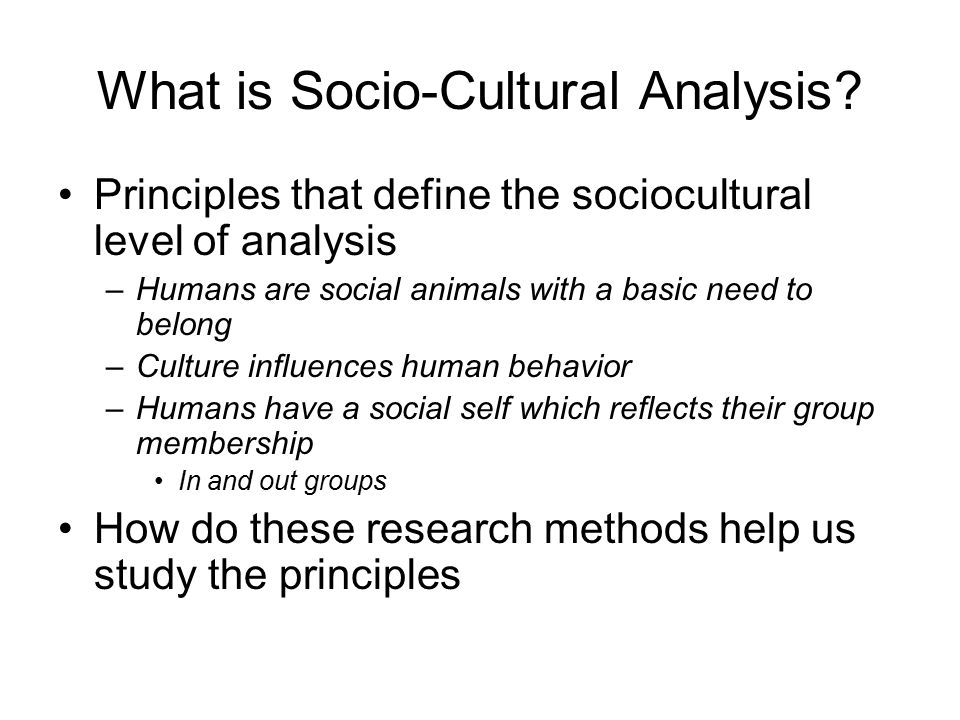Human societies are intricate tapestries woven from a myriad of threads – beliefs, practices, traditions, and institutions. Socio-cultural analysis is the lens through which we examine and make sense of this complex fabric. It delves into the interplay of culture, society, and behavior, offering profound insights into how individuals and communities navigate their worlds. In this article, we embark on a journey into the realm of socio-cultural analysis, exploring its core concepts, methodologies, and the transformative impact it has on our understanding of diverse cultures.
**1. Unpacking Socio-Cultural Analysis
At its core, socio-cultural analysis is the study of how culture, societal structures, and norms shape human behavior and interactions. It seeks to unravel the deep-seated influences that govern the way individuals perceive the world around them and engage with others.
**2. Cultural Studies Methodologies
Socio-cultural analysis draws on a range of research methodologies, including ethnography, participant observation, interviews, and surveys. These tools allow researchers to immerse themselves in the cultural contexts they study, gaining firsthand insights into the beliefs, practices, and values of the communities they examine.
**3. Societal Influences on Behavior
Understanding the societal influences on behavior is a central tenet of socio-cultural analysis. It explores how cultural norms, traditions, and social structures influence individuals’ attitudes, decisions, and interactions in various contexts, from family dynamics to public institutions.
**4. Anthropological Perspectives: Holistic Understanding
Anthropology, a cornerstone of socio-cultural analysis, provides a holistic framework for studying human societies. It encompasses cultural anthropology, which focuses on the beliefs and practices of specific groups, and social anthropology, which examines broader societal structures and institutions.
**5. Cross-Cultural Research Methods
Comparative studies across cultures are a key aspect of socio-cultural analysis. Researchers employ cross-cultural research methods to identify commonalities, differences, and unique cultural dynamics, shedding light on the diversity of human experience.
**6. Social Norms and Values: The Bedrock of Culture
Socio-cultural analysis delves into the norms and values that underpin a society. These unwritten rules dictate acceptable behavior, shape social interactions, and define collective identities. Understanding these cultural foundations is crucial for deciphering the complexities of human societies.
**7. Cultural Diversity and Identity
Cultural diversity is a fundamental aspect of socio-cultural analysis. It recognizes the richness of human experience across different cultures, languages, and traditions. Exploring cultural identity and its intersections provides insights into how individuals negotiate their sense of self within larger societal contexts.
**8. Cultural Impacts on Social Institutions
Societal institutions, such as education, governance, and religion, are deeply influenced by cultural norms and values. Socio-cultural analysis investigates how these institutions are structured, function, and evolve within specific cultural contexts, shaping the lived experiences of individuals.
**9. Cultural Change and Adaptation
As societies evolve, so do their cultures. Socio-cultural analysis also encompasses the study of cultural change, adaptation, and the ways in which external influences, such as globalization and technological advancements, impact traditional practices and belief systems.
**10. The Transformative Impact of Socio-Cultural Analysis
Socio-cultural analysis transcends academic inquiry; it informs policy-making, social interventions, and cross-cultural dialogue. By gaining a nuanced understanding of the intricacies of human societies, socio-cultural analysis contributes to fostering empathy, cultural sensitivity, and global danatoto citizenship.
Conclusion: Navigating the Tapestry of Human Experience
Socio-cultural analysis is a compass that guides us through the diverse landscapes of human societies. It unveils the intricate connections between culture, behavior, and societal structures, fostering a deeper appreciation for the complexities of human experience. By embracing socio-cultural analysis, we embark on a journey of understanding, empathy, and appreciation for the rich tapestry of cultures that shape our world.

